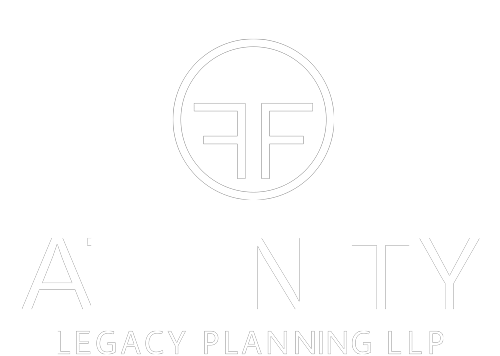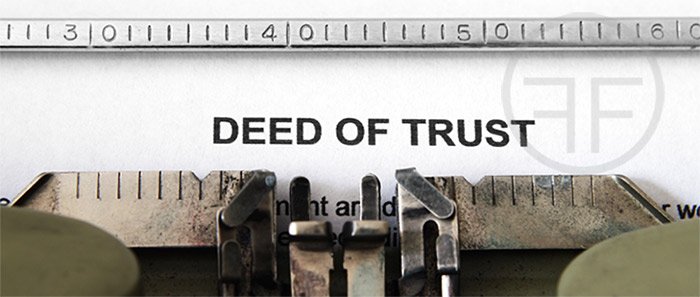TRUSTS
We understand that you want to leave a legacy behind for your successive generations. This will include your money, property, assets, and your business.
What is a Trust?
A Trust is a legal arrangement where one or more 'Trustees' are made legally responsible for holding assets.
The assets - such as land, money, buildings, shares, or even antiques - are placed in Trust for the benefit of one or more 'Beneficiaries'.
The Trustees are responsible for managing the Trust and carry out the wishes of the person who has put the assets into Trust (the 'Settlor'). The Settlor's wishes for the Trust are usually written in their will or set out in a legal document called 'the Trust Deed'.
A Trust serves several purposes and can be set up for various reasons:
- * to control and protect personal or family wealth and assets when someone is too young or unable to handle their own affairs
- * to pass on money or property while you are still alive
- * to pass on money or assets when you die under the terms of your Will – known as a 'Will Trust'
Effective succession planning often involves the use of some type of Trust arrangement. Under English law, a 'Trust' essentially involves making the legal control of the assets in question separate and distinct from the ability to benefit from those assets.
The law around Trusts and the way in which they are taxed can be complex and is prone to change. Our team of experts is here to help and can provide you with clear and sensible advice so that you can make informed choices. We will work with you to identify and implement the solutions tailored to best meet your needs and circumstances.
We specialize in structuring a variety of different types of Trusts. Amongst our array of Trust structures, we can assist you in each of the following areas of Trust planning:
Pension Trusts
Many people are aware that their pension is held in Trust for their retirement, but they may not know that they can become a legal Trustee of their pension. This provides them with control and a say over what happens to their pension savings in the event of their death. Our panel of Independent Financial Advisors will assess your retirement provisions to determine whether a pension trust is suitable for your needs.
Property Trusts
Under the Community Care Act 1990, Local Authorities have the right, by law, to seize your family home, put it up for sale, and use the proceeds to cover long-term care home costs. Having a Property Trust is a way for you to avoid losing your home to pay for long-term care.
Children's/Grandchildren's Trust
If you would like your children or grandchildren to inherit some or all of your estate, you need to stipulate this in your Will. However, if this is the only action you take in relation to your wishes, you should be aware that if the child is under 18 years of age, their inheritance will be held in a complex and costly legal trust until they reach 18.
By implementing a Children's/Grandchildren's Trust, you can avoid this complication and also dictate greater control over when the beneficiary should benefit from their inheritance.
Disabled Discretionary Trusts
Under the Inheritance Act (1975), the Social Services and the Department of Social Security may contest a Will if insufficient provision has been made to provide for the care of a disabled child, which can result in an unpleasant and costly legal dispute.
In the absence of a Trust and where the disabled beneficiary is unable to manage their finances, the Court of Protection can intervene and decide who they feel is a suitable receiver of your disabled child's or beneficiary's inheritance. The most effective way to ensure that their inheritance is preserved is through a Disabled Discretionary Trust, as all assets (money, property, shares, bonds, etc.) placed within the Trust can be used to provide for their long-term care needs.
Inheritance Tax Trusts
If you are a cohabiting couple, you do not qualify for spousal relief from Inheritance Tax. This means that all of your partner's wealth, over the £325,000 threshold, will be subject to the 40% tax.
Any tax liability above the £325,000 threshold can be eliminated with the Inheritance Tax Trust using tax planning tools.
The Total Asset Protection Trust
Total Asset Protection Trusts are highly specialist Trusts, which can be used to protect your home, assets, savings, and investments.
A key benefit of this Trust structure is that any property and savings held within the Trust are exempt from local authority means testing as the assets held within the Trust are no longer part of your personal estate. It also ensures that only your chosen beneficiaries are entitled to receive what you want them to, and no person, government, or local authority can state a claim.
Set up by a barrister and monitored by taxation specialist accountants, the Total Asset Protection Trust, which is designed to hold assets for your benefit while you are still alive, is extremely versatile and robust, providing you with full access to and control over your estate at any time.
Charitable Trusts
Charitable Trusts allow you to support the causes and charities close to your heart even after you're gone. By setting up a Charitable Trust, you can leave a lasting impact on the organizations and initiatives you care about while potentially reducing the burden of inheritance tax on your estate. Our team can guide you through the process of establishing a Charitable Trust and help you choose the most suitable charitable beneficiaries to align with your philanthropic goals.
Business Succession Trusts
If you are a business owner, ensuring a smooth transition of your business to the next generation or a chosen successor is crucial for its continuity and success. A Business Succession Trust can provide a structured plan for passing on the ownership and management of your business. With our expertise in Trust planning and business law, we can assist you in creating a robust Business Succession Trust that safeguards the interests of your business and preserves your legacy.
Life Insurance Trusts
A Life Insurance Trust can be an effective tool to avoid inheritance tax on the proceeds from life insurance policies. By placing your life insurance policy within a Trust, the payout can be excluded from your estate for tax purposes, potentially saving your beneficiaries a significant tax burden. Our team can help you set up a Life Insurance Trust that aligns with your estate planning goals and ensures that your loved ones receive the intended benefits from your life insurance policy.
Trust Administration Services
Managing a Trust can be a complex and time-consuming process, requiring adherence to legal and financial obligations. Our Trust Administration Services offer professional support for Trustees in fulfilling their responsibilities, including record-keeping, accounting, tax compliance, and distribution of assets to beneficiaries. With our experienced team, you can navigate the administrative aspects of Trust management with confidence and ensure the smooth execution of your Trust's objectives.
Trust Review and Restructuring
As circumstances change, it's essential to review and adapt your Trust to ensure it continues to meet your evolving needs and goals. Our Trust Review and Restructuring services can help you assess the effectiveness of your existing Trust and make any necessary adjustments. Whether you need to add or remove beneficiaries, change Trustees, or modify the Trust terms, our experts will guide you through the process and ensure your Trust remains a solid foundation for your estate planning strategy.

